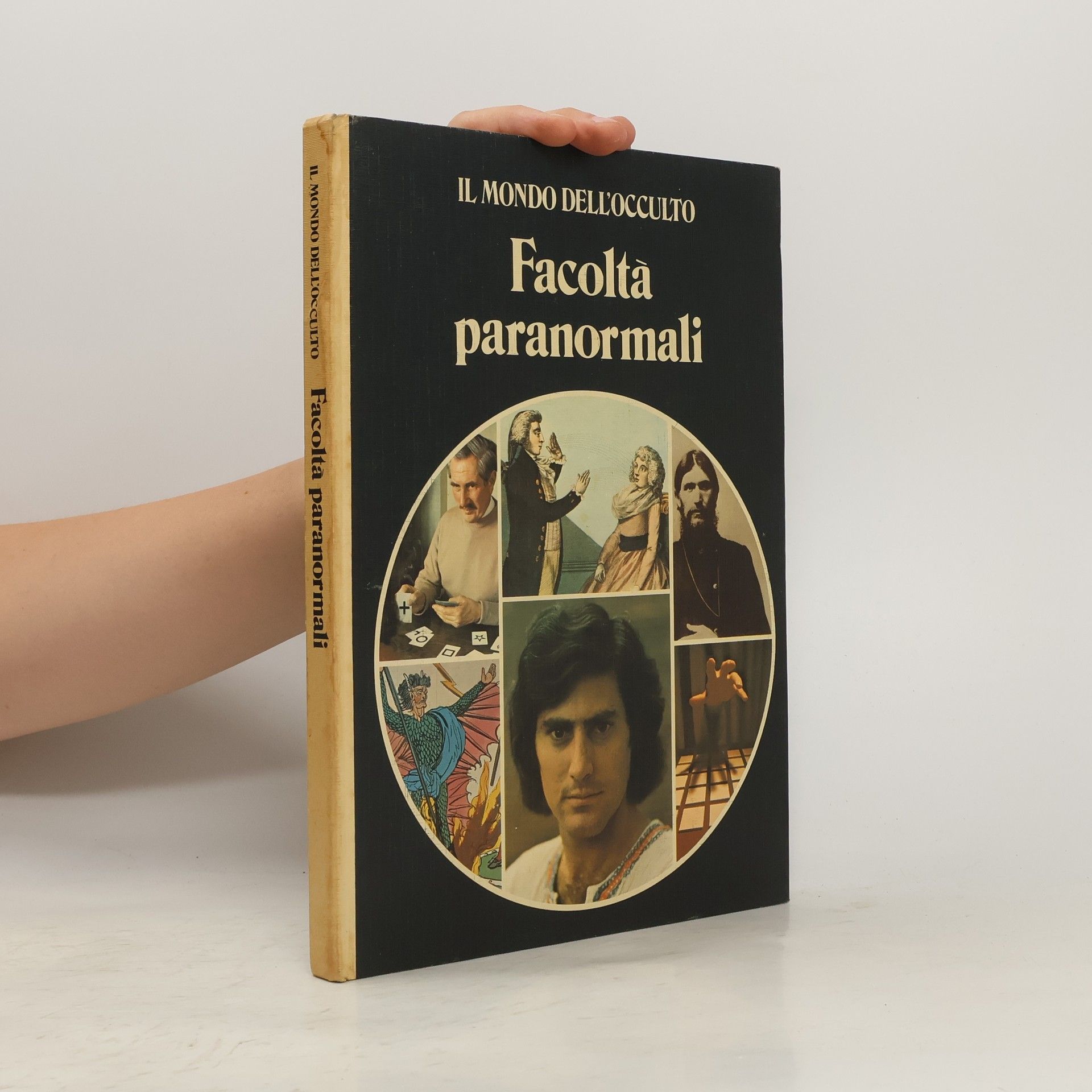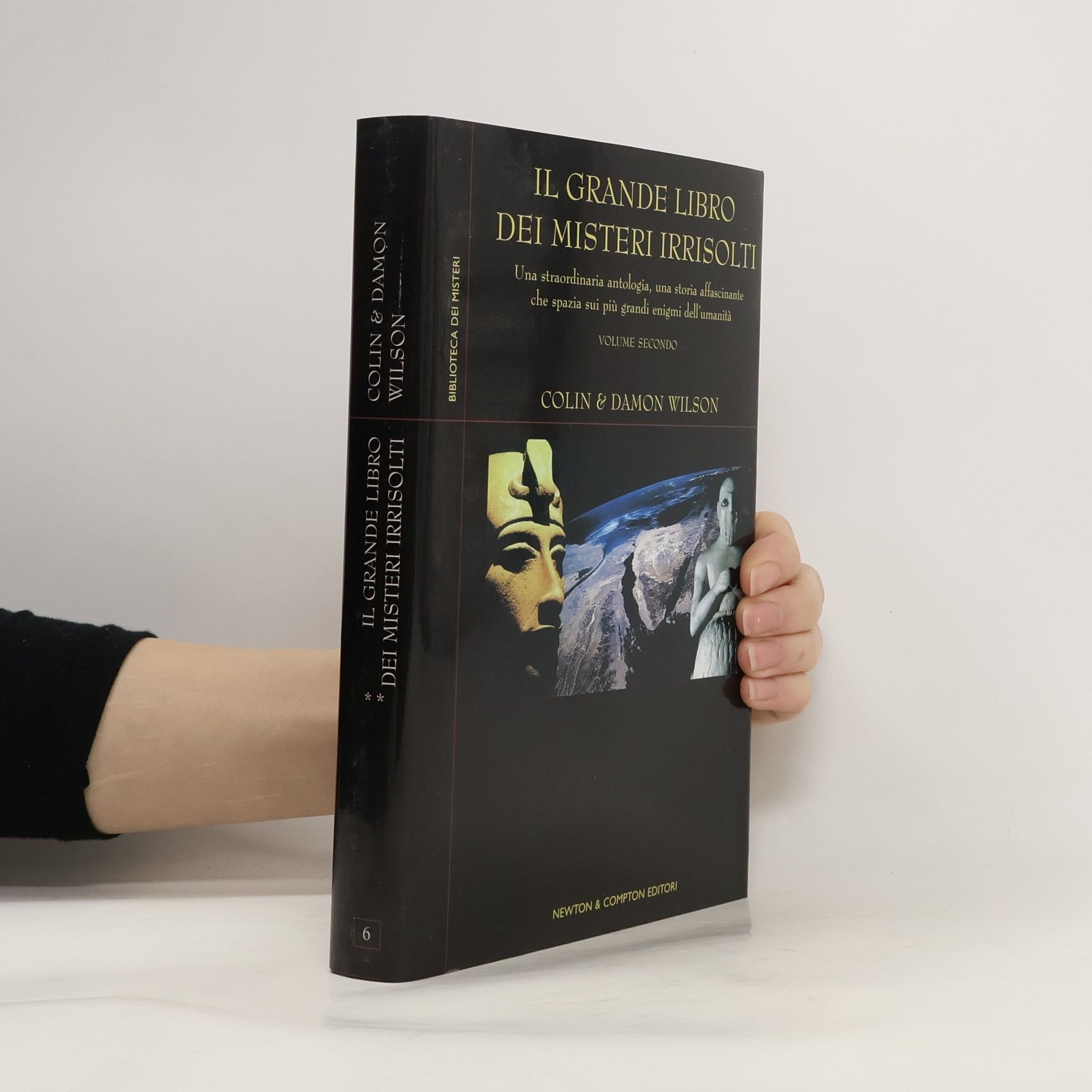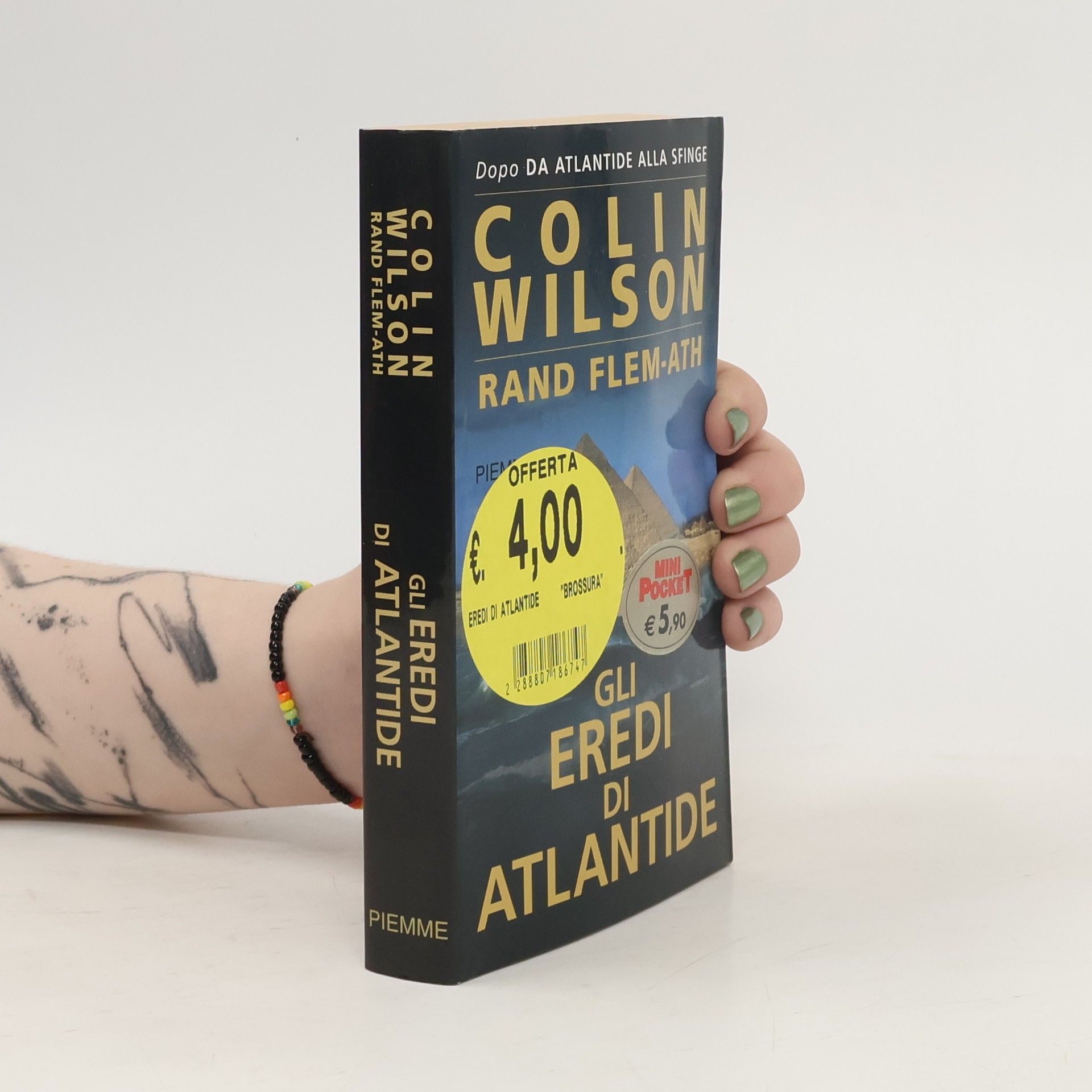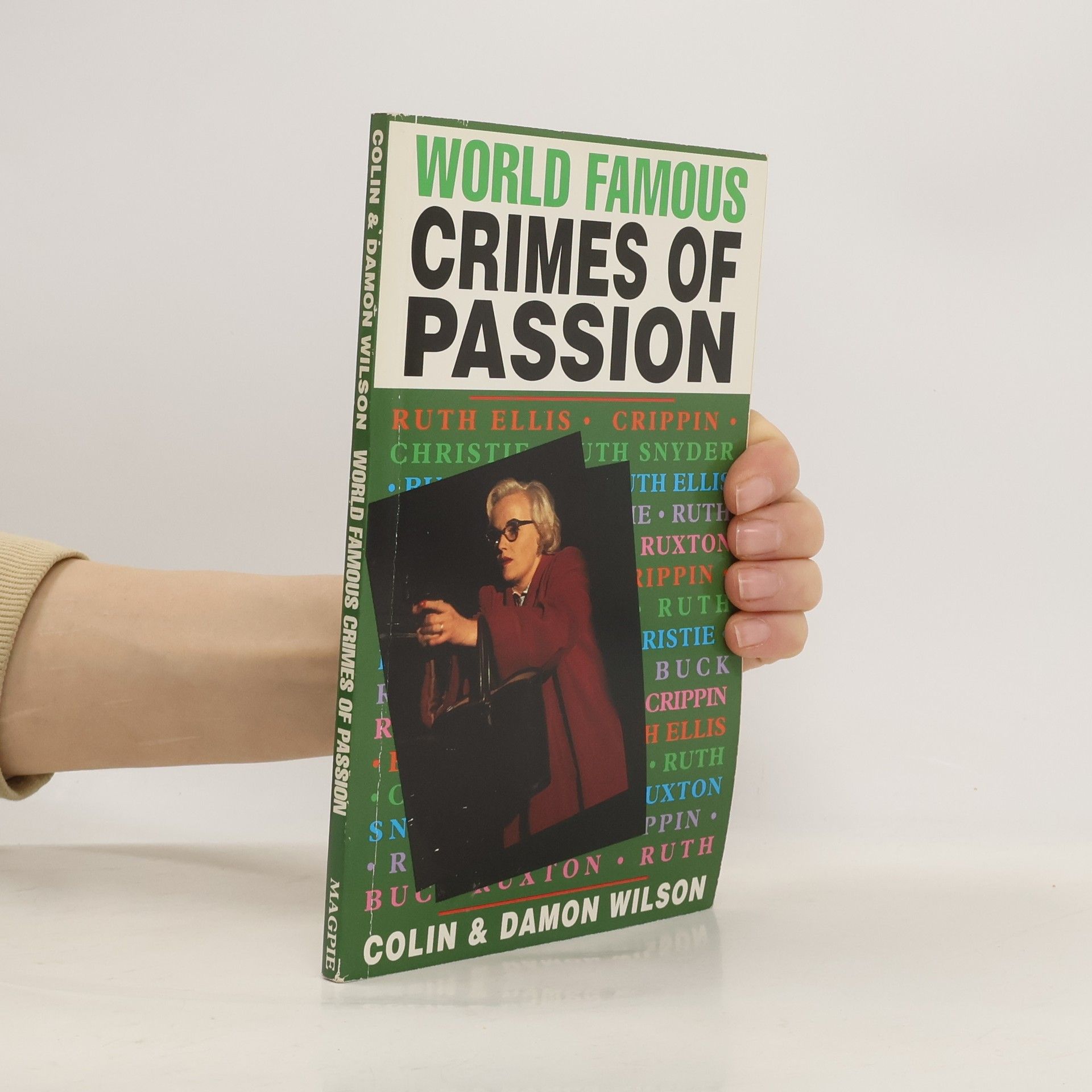Dagli uomini primitivi fino ai mafiosi contemporanei, un sottile filo rosso guida il destino del genere umano lungo un percorso che ha lo stesso colore del sangue. Si tratta della violenza e della criminalità, una volontà di sopraffazione che non conosce confini né di tipo spaziale né di tipo temporale e che, vero universale culturale, caratterizza ogni epoca storica e ogni luogo abitato della Terra. Dagli Assiri, spesso sadici e brutali, agli antichi romani, anche detti "i tagliagola del Mediterraneo", passando attraverso la follia distruttrice dei Vandali, le stragi di Gengis Khan e le esecuzioni di massa ordinate da un Tamerlano, un Ivan il Terribile o un Vlad l'Impalatone, ovunque il terrore, la morte e la distruzione accompagnano il cammino della razza umana, la sola tra tutte le specie del pianeta, in grado di uccidere senza alcuna necessità di difendersi o dì cibarsi.
Colin Wilson Libri
Colin Wilson è stato un autore britannico che ha guadagnato fama per la sua opera iniziale, esaminando il ruolo dell' 'outsider' sociale nelle opere di figure letterarie e culturali chiave. Nei suoi scritti successivi, Wilson ha esplorato gli aspetti positivi della psicologia umana, come le esperienze culminanti e le limitazioni della coscienza. Ha criticato duramente l'enfasi esistenzialista sulla sconfitta o la nausea come una visione incompleta della realtà. Wilson postulò che i nostri momenti più grandi di gioia e significato sono reali quanto i sentimenti di angoscia, e che vivere pienamente richiede di trascendere la coscienza ordinaria e 'limitata'.







Nel 1957, lo scienziato francese Jacques Bergier avanzò l'ipotesi dell'improvvisa scomparsa dei dinosauri causata da un'esplosione di una supernova e venne accusato di essere un visionario. Un decennio dopo si capì quanto la causa più probabile di tale evento non fosse poi tanto lontana dall'ipotesi di Bergier. Il testo analizza oltre sessanta eventi misteriosi ancora in attesa di una spiegazione, passando in rassegna le varie ipotesi proposte per la loro soluzione e valutando l'attendibilità di ciascuna di esse.
Gli eredi della terra
Una scoperta sconvolgente: la civiltà umana risale a quasi centomila anni fa
In over 80 books, Wilson has explored alternate realities involving crime, sex, and the occult, suggesting that our everyday consciousness is limited compared to the potential powers available to us. His synthesis of the alien/UFO phenomenon showcases both his encyclopedic knowledge and a notable weakness. In his eagerness to be inclusive, he covers the history of UFOs from mythology to modern accounts, alongside topics like Uri Geller, LSD research, crop circles, ley lines, the Loch Ness monster, remote viewing, Jung, hypnotism, poltergeists, Ouspensky, out-of-body experiences, and quantum physics. Much of the content consists of unfootnoted second- and third-hand accounts of UFOs and related phenomena, leading to an unfocused collection of anecdotes with little deeper analysis. He frequently poses the question, "What, then, are we to make of it all?" At times, he suggests that the absurdity of certain claims might actually lend them credibility, as a fabricator would likely make a story more believable. By the time readers reach the chapter titled "Oh no, not again!" the phrase carries an unintended weight. Ultimately, he seems to view aliens as agents of consciousness transformation, yet he offers scant evidence or clarity to support this idea.
Biblioteca dei misteri - 6: Il grande libro dei misteri irrisolti
Una straordinaria antologia, una storia affascinante che spazia sui più grandi enigmi dell'umanità
World Famous Crimes of Passion
- 121pagine
- 5 ore di lettura
Dark Dimensions
- 236pagine
- 9 ore di lettura



